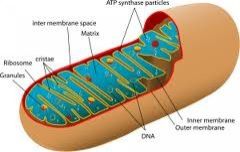USC Links Enzyme Depletion to Ageing
Scientists Show Possibilities Of New Diets Or Pharmaceuticals To Slow The Aging Process

Human obsession for staying young has built a multi-billion dollar anti-aging industry that promises youth. But, is it always possible to reverse aging?
A recent study finding by biologists at the University Of Southern California (USC) might help to explain why humans lose energy with age. One benefit of the study could lead to pathways for developing medicine, new diets or pharmaceuticals that might help to slow the aging process.
In the new study, published in the Journals of Gerontology, USC scientists have revealed that as human cells grow older, there is a greater decline in the availability of an enzyme, called Lon protease.
The researchers showed that when oxidative agents attack the power centres of young cells, the cells respond by calling up reinforcements of the c, which breaks up and removes damaged proteins.
With age, cells lose their ability to mobilize large numbers of Lon, which protects the mitochondria (tiny organisms in the cell that convert oxygen into energy). The conversion is never perfect: Some oxygen leaks and combines with other elements to create damaging oxidants.
Senior author Kelvin J. A. Davies, a professor at the USC Leonard Davis School of Gerontology, used a war analogy to explain that no standing army of Lon protease can endure an attack by invading oxidants without calling up reserves.
We know that mitochondrial function declines with age, which is a major limitation to cells. One of the components of that decline is the loss of Lon. The ability of Lon to be induced by [oxidative] stress is a very important component of overall stress resistance, Davies said.
Oxidation is the process behind rust and food spoilage. In the body, oxidation can damage or destroy almost any tissue. Lon removes oxidized proteins from the mitochondria and also plays a vital role in helping to make new mitochondria.
The Davies group, which discovered Lon in 2002, previously had shown that Lon's standing army gets smaller with age and that the anti-oxidant power of Lon depends more on its reserves than on enzymes present when stress first hits the body.
The latest study therefore completes the picture of Lon's sluggish response as senescent cells or cells that mimic several key features of the aging process, try to cope with stress.
Davies and others are investigating potential treatments to boost the function of Lon. Costly enzyme supplements are useless, Davies noted, since the digestive system breaks down the enzyme to amino acids before it can reach its target. It's a lot cheaper to buy a piece of meat and get the same amino acids, he said.
Whether scientists are able to unleash the powers of Lon protease for anti-aging formulae is yet to be seen. Till such time, demand for dietary intake of naturally occurring antioxidants found in dark chocolate, Lipoic acid, Vitamin E, Vitamin C and CoEnzyme Q10, will remain a favourite.
© Copyright IBTimes 2025. All rights reserved.





















